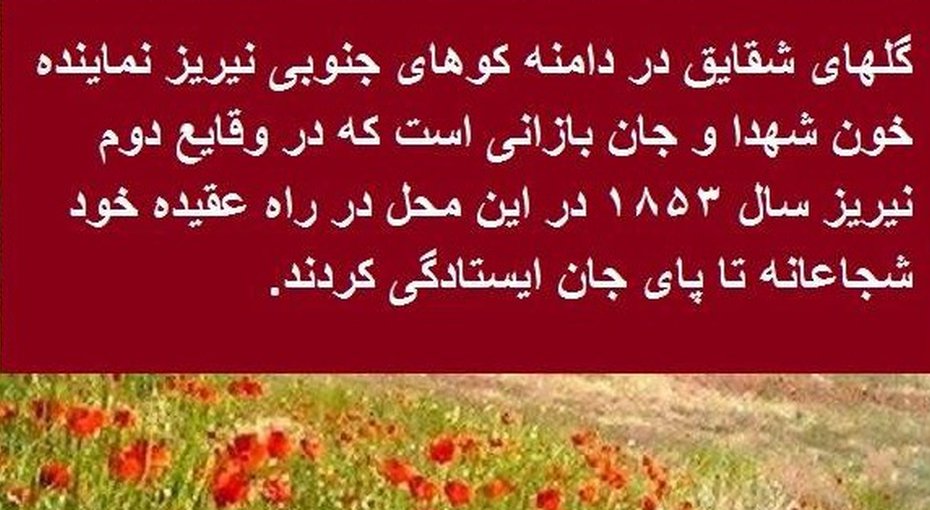
|
|
Abstract: Reflections on the Bahá'ís of Iran, the discrimination and brutality they have faced, and how their plight brought the faith out of obscurity. Notes: |
“Should they attempt to conceal its light on the continent, it will assuredly rear its head in the midmost heart of the ocean, and, raising its voice, proclaim: 'I am the life-giver of the world!’"
 Hussein Ahdieh's book Foreigner is about his journey out of Iran |
In the wake of the Islamic Revolution in Iran, the clergy consolidated its grip on power by attacking its enemies, both real and perceived. The Baha’is became victims of their vicious plan.This included kidnapping and killing the members of the National Spiritual Assembly of the Bahá'ís of Iran in the misguided hope that, by “cutting off the head” of the faith in Iran, the rest of the Bahá'ís would give up.
Almost half of the Bahá'ís executed in those years were members of Baha’i institutions. Yusuf Sobhani, my friend, was executed on June 27, 1980. He was a manager at the Pepsi Cola Company, owned by a Baha’i, which brought him to the attention of the authorities. His death was witnessed by his sister. The only charge brought against him was being a Baha’i.
He was well known to the Tehran Bahá'ís because of his service as the caretaker of the House of Bahaullah in that city. Yusuf’s ancestors had become believers in the time of the Bab, when several of His followers were passing through their hometown of Sangsar on their way west to join Mulla Husayn and those riding under the Black Standard. Sangasar people had a reputation for bravery. Years later, Yusuf served on the Local Spiritual Assembly of the Baha’is of Sangsar and, because of his reliability, during the Islamic revolution was frequently asked by the National Spiritual Assembly of Iran to carry out important tasks. His family urged him to immigrate to America for his own safety, but he felt he could be more useful in Iran, where he ultimately met his martyrdom.
 Red poppy flowers symbolize those who die during war. The flower can often be seen in the southern mountain of Neyriz, where many Bahá'ís were killed in 1953. |
He was physically strong and a gutsy man who loved sports and wrestling. He exercised for an hour and took a cold bath every day while in prison. The other prisoners and the guards had come to respect him, and on the day before his execution, family and friends came to visit him. He showed no fear. He was happy. He told his wife not to wear a black dress once he was gone, and to bring candies to the prison guards. His sister’s husband, Mr Jamaloddin Khanjani, who was later imprisoned for 20 years for being a member of the Yaran [the informal leadership group for Iran’s Baha’i religious minority], was trembling. Yusuf turned to him and said “My dear friend, it is me whom they are going to kill. Why are you the one shaking?”
Rosita Eshraqi, my wife’s relative, was 17 years old and visited her father while he was in prison in Shiraz. He was happy for her because she had just got engaged, and told her that even if he was not there for the celebration his love would always be with her. The next day, the guards took her father and five other Baha’i prisoners for a court appearance, but the men knew there was no court scheduled for that day. Two days later a few Baha’i friends came to Rosita’s house looking very distressed. She was busy preparing for her engagement and she realized what may have happened. She cried out: “My father, my dear father.” She wept, she leaned on the wall and slid down to the floor.
At the morgue, she begged the guard who knew her from her visits to her father in prison. Entering the morgue, she saw seven bodies lying on the floor and recognized her father. She stepped toward him, eyes fixated, and tripped over a corpse. She leaned over to kiss her father’s face, which was cold to the touch of her lips, repeating through her tears, “Oh God, is this my father?” His body was so swollen that she could not see the rope marks on his neck. His arms, though, lay tranquilly by his side, and a smile had remained fixed on his face. Backing out of the room, she shivered uncontrollably.
Rosita went to give the news about her father’s execution to her mother and sister, who were also in prison. Before she had even picked up the phone in the prisoner meeting room, they knew something was wrong. Her sister’s eyes filled with tears, and then a smile spread across her face. Rosita was amazed at their strength. Her mother related a dream in which they were all reunited, and she told Rosita to be strong, to be happy, and to go on and live her life. She was leaving Rosita in God’s Hands now. Rosita could see a light shining in the eyes of her sister and mother that she had never seen before. Both were hanged a few days later, with eight other girls.
In 1982, the Universal House of Justice wrote about these executions and the suffering of the Iranian Bahá'ís:
“Every drop of bloodshed by the valiant martyrs, every sigh heaved by the silent victims of oppression, every supplication for divine assistance offered by the faithful, has released, and will continue mysteriously to release, forces over which no antagonist of the Faith has any control, and which, as marshalled by an All-Watchful Providence, have served to noise abroad the name and fame of the Faith to the masses of humanity in all continents...”
The sacrifice of these Bahá'ís brought the faith to worldwide attention, helping it to emerge out of obscurity. Iranian Bahá'ís migrated to every continent in the world, assisting in building Baha’i communities, attaining the highest levels of education, starting profitable businesses and achieving excellence in a variety of professions. Families from my small, insignificant hometown of Neyriz achieved material and spiritual prosperity in their new countries: three members of the Universal House of Justice, the highest elected governing body of the Baha’i community, could trace some of their family lineages back to martyrs of Neyriz: Ali Nakhjavani, Adib Taherzadeh and current member Ayman Rouhani.
Over the course of our lives, like those of many Bahá'ís of Iran, the Baha’i faith has sustained our souls, and the United States of America has given us the opportunity to realize our professional potentials. The prayers of generations of our families have protected us:
“Ordain, O Lord, through Thy most exalted Pen, that which will immortalize our souls in the Realm of glory, will perpetuate our names in Thy Kingdom, and safeguard our lives in the treasuries of Thy protection and our bodies in the stronghold of Thy inviolable fastness.
|
|